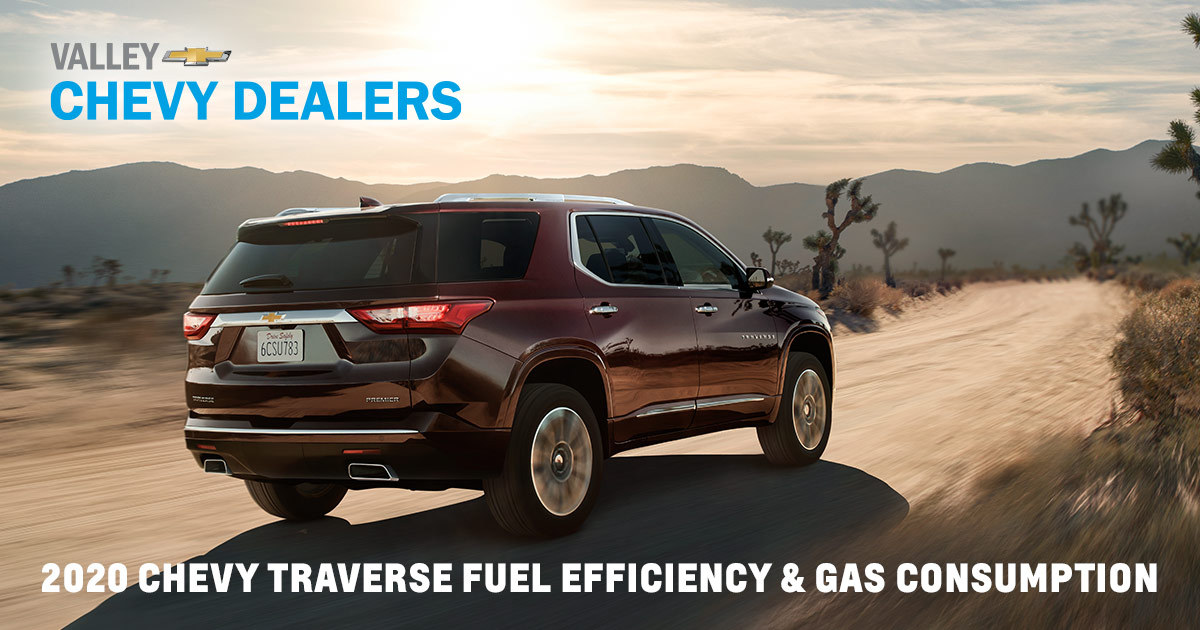The Chevrolet Traverse: Navigating the Future of Fuel Efficiency
The Chevrolet Traverse: Navigating the Future of Fuel Efficiency
Introduction
In this auspicious occasion, we are delighted to delve into the intriguing topic related to The Chevrolet Traverse: Navigating the Future of Fuel Efficiency. Let’s weave interesting information and offer fresh perspectives to the readers.
Table of Content
The Chevrolet Traverse: Navigating the Future of Fuel Efficiency

The Chevrolet Traverse, a popular three-row SUV known for its spacious interior and versatile functionality, is poised for a significant shift in its fuel efficiency profile. While specific figures for the 2025 model year are not yet available, industry trends and the manufacturer’s commitment to sustainability suggest a notable improvement in fuel economy.
Understanding the Importance of Fuel Efficiency
Fuel efficiency is not merely a numerical statistic; it represents a crucial intersection of environmental responsibility and economic practicality. As the automotive industry grapples with the pressing need to reduce carbon emissions and minimize reliance on fossil fuels, achieving optimal fuel economy becomes paramount. For consumers, fuel efficiency translates into significant cost savings at the pump, reducing the financial burden of driving.
Factors Influencing Fuel Efficiency in the 2025 Chevrolet Traverse
Several factors will likely contribute to enhanced fuel efficiency in the 2025 Chevrolet Traverse:
- Engine Technology: Chevrolet is expected to continue its investment in advanced engine technologies, potentially incorporating hybrid or even fully electric powertrains. These systems offer improved fuel economy by utilizing a combination of gasoline and electric power or relying solely on electricity.
- Aerodynamics: Streamlined designs and aerodynamic enhancements, such as active grille shutters, can reduce drag and improve fuel efficiency.
- Weight Reduction: Lightweight materials, such as high-strength steel and aluminum, can significantly reduce the overall weight of the vehicle, resulting in better fuel consumption.
- Advanced Transmission Systems: Sophisticated transmissions, such as 9-speed automatics, optimize gear ratios for smoother acceleration and improved fuel efficiency.
- Driver Assistance Technologies: Features like adaptive cruise control and lane departure warning systems help drivers maintain a consistent speed and avoid unnecessary acceleration, contributing to improved fuel economy.
The Potential Impact of Enhanced Fuel Efficiency
Improved fuel efficiency in the 2025 Chevrolet Traverse could have a significant impact on various aspects:
- Environmental Impact: Reduced fuel consumption directly translates to lower greenhouse gas emissions, contributing to a healthier environment.
- Consumer Savings: Lower fuel costs can lead to substantial savings for Traverse owners, freeing up their budgets for other expenses.
- Increased Market Competitiveness: A more fuel-efficient Traverse would strengthen its position in the competitive SUV market, appealing to a wider range of environmentally conscious consumers.
FAQs about Fuel Efficiency in the 2025 Chevrolet Traverse:
Q: What specific fuel economy figures can we expect for the 2025 Chevrolet Traverse?
A: While precise figures are not yet available, industry projections suggest a significant improvement over the current model. Chevrolet’s commitment to sustainability indicates a substantial increase in fuel economy for the 2025 Traverse.
Q: Will the 2025 Traverse offer hybrid or electric powertrain options?
A: While Chevrolet has not officially confirmed specific powertrain options for the 2025 Traverse, the company’s focus on electrification suggests the possibility of hybrid or electric versions in the future.
Q: What are the potential downsides to pursuing enhanced fuel efficiency?
A: While the benefits of improved fuel efficiency are numerous, there may be some trade-offs. For example, incorporating advanced technologies could increase the initial cost of the vehicle.
Tips for Improving Fuel Efficiency in the 2025 Chevrolet Traverse:
- Drive Responsibly: Avoid aggressive acceleration and braking, maintain a consistent speed, and anticipate traffic conditions.
- Utilize Cruise Control: Cruise control helps maintain a steady speed, minimizing unnecessary acceleration and braking.
- Minimize Cargo Weight: Unnecessary weight in the vehicle can negatively impact fuel efficiency.
- Proper Tire Inflation: Under-inflated tires increase rolling resistance, affecting fuel economy.
Conclusion
The 2025 Chevrolet Traverse is expected to represent a significant leap forward in fuel efficiency, driven by technological advancements and a growing commitment to sustainability. As the automotive industry continues to evolve, the Traverse’s improved fuel economy will likely become a key selling point, appealing to consumers seeking a balance of practicality, performance, and environmental responsibility. By embracing innovative solutions and prioritizing fuel efficiency, the Chevrolet Traverse is poised to navigate the future of automotive transportation with a focus on sustainability and cost-effective driving.








Closure
Thus, we hope this article has provided valuable insights into The Chevrolet Traverse: Navigating the Future of Fuel Efficiency. We appreciate your attention to our article. See you in our next article!